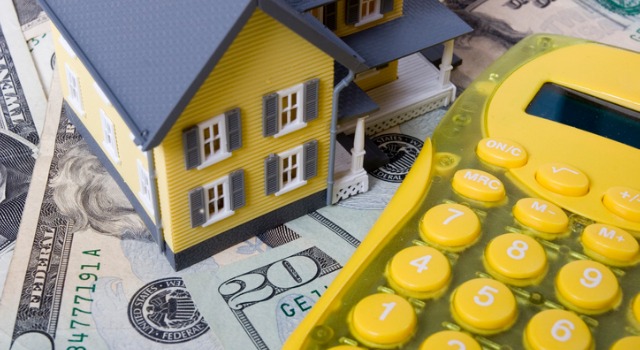Do you know how much of a down payment is necessary to purchase a home? Many folks have misconceptions about a down payment. With incorrect information, the buying process can quickly become an expensive experience.
The down payment is a substantial part of this expense, but how much money do you need to pay? Many people will tell you that a 20 percent figure should be aimed for. This can represent a huge amount of money. For example, it would be $80,000 on a property worth $400,000.
It can be very difficult to save up large sums of money like this, so can you get away with a lower down payment? The answer is yes, you can. Before discussing the funds you'll need to come up with, it's essential to understand that there is a difference between earnest money and a down payment. Your earnest funds will be the money put in escrow by the real estate company to show that you're sincere in moving forward with the purchase.
A down payment, on the other hand, is the difference between what you'll be financing and the purchase price of the home. These monies go toward the purchase price of the home.
The earnest money deposit is a smaller payment to show the seller that your offer is genuine. It can be part of the down payment, but typically only represents between 1 - 5 percent of the offer price. The earnest money could be at risk if you choose to pull out of the deal.
The down payment is normally a larger percentage of the purchase price and is money you aren't borrowing from the mortgage lender. The remainder of the offer price—after the down payment—is funded through the mortgage.
Finding the Money for Your Down Payment
The larger the down payment you're able to meet, the better. But you shouldn't overstretch your finances beyond a breaking point. There will be many other expenses to cover when moving into a new home, and if you don't have any spare funds, you could run into trouble. Here are a few options, other than just emptying your savings account:
- Family loans or down payment gifts. Receiving money from your family in the form of a loan or gift can really help in this situation, but bear in mind that you need to explain where the money has come from when applying for the mortgage.
- Personal loans. Getting another loan can bring additional issues. Lenders may not allow you to do this ,and you'll alter your debt-to-income ratio for the worse.
- Withdrawing from your retirement fund. Taking money from your 401(k) or IRA can mean you will have to pay penalties. There is an exception for first-time buyers, which allows you to withdraw $10,000.
- Selling possessions or assets. If you have assets that are worth significant amounts, it may be a good time to sell. There are numerous ways you can save for a down payment.
Assistance Programs
The down payment you need can come from a Department of Housing and Urban Development grant. They run a program for first-time buyers to make buying easier. The options for this will vary depending on your location, so check with your county to see if you can qualify.
Mortgage Loans Available With Lower Down Payments
Here are a few options to reduce the down payment requirement:
- VA mortgages. The Department of Veterans Affairs offers a very good mortgage deal for those who qualify. They offer a zero down payment option, as well as competitive interest rates. In order to qualify for a VA loan, you'll need to either be serving or have served in the military.
- FHA mortgages. The Federal Housing Administration offers down payments as little as 3.5 percent, but do require mortgage insurance. An FHA loan is one of the more popular loan options, especially with first-time buyers.
- Traditional loans. If you're willing to talk to more lenders, you could potentially find deals as low as 3 percent for a down payment. You can now get a conventional loan with as little as 3 percent down. Years ago, this was not possible.
The Reason for the 20 Percent Down Payment
As you can see, there are many options for avoiding having to find 20 percent for the down payment. But what are the downsides to not putting 20 percent down?
If you aren't able to meet this figure, you will need to pay what's known as private mortgage insurance. This is required by the lender to make sure they don't lose out if you fail to keep up with payments. If you have 20 percent or more of your own money in the property, you're seen as less likely to default and, therefore, less of a risk to the lender. You'll also have less to pay back and lower monthly payments.
If you can put down larger amounts for a down payment, you may be able to find lenders that will offer better interest rates. This will save you a lot of cash in the long run.
The seller of the home may be more open to an offer with a 20 percent down payment as well. This could make the difference in a competitive housing market.
You Don't Need Twenty Percent Though
It should be made abundantly clear, however, that a twenty percent down payment is not a requirement to buy a home. That's an old mortgage myth that many people still believe today. More often than not, buyers put down something less than twenty percent. There are many no and low down payment mortgage options available. A significant percentage of buyers would never be able to purchase a house if they had to come up with that kind of money.
The bottom line is to stay within your means financially so you have a pleasant buying experience. Make sure you work on your credit score so you end up getting the best loan terms and conditions. The money you stand to save over the years can be tremendous.
Purchasing a home is never something that should be taken lightly. It's vital to be comfortable not only with your down payment amount, but also, your ability to pay the mortgage month after month even if a catastrophe strikes. Never put yourself in a position where you could lose your home because you have no additional money in savings for emergencies. Hopefully, you now have a better understanding of the down payment amount needed to buy a home.
 Bill Gassett is a nationally recognized real estate leader who has been helping people buy and sell MetroWest Massachusetts real estate for the past 33 years. He has been one of the top RE/MAX REALTORS® in New England for the past decade. Gassett works for RE/MAX Executive Realty in Hopkinton, Mass. In 2018, he was the No. 1 RE/MAX real estate agent in Massachusetts.
Bill Gassett is a nationally recognized real estate leader who has been helping people buy and sell MetroWest Massachusetts real estate for the past 33 years. He has been one of the top RE/MAX REALTORS® in New England for the past decade. Gassett works for RE/MAX Executive Realty in Hopkinton, Mass. In 2018, he was the No. 1 RE/MAX real estate agent in Massachusetts.








